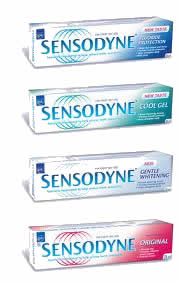IMMUNITY TO TETANUS IN MALE ADULTS IN DAR ES SALAAM, TANZANIA
Abstract
Objective: To determine immunity to tetanus in male blood donors with previous diphtheriapertussis-
tetanus (DPT)/tetanus toxoid (TT) vaccination.
Design: A cross sectional study, conducted in September 1999.
Setting: Blood bank, Muhimbili Medical Centre, Dar es Salaam, Tanzania.
Methods: Using an antigen competition ELISA technique, serum tetanus anti-toxin levels in
two hundred male blood donors were determined.
Results: Vaccination history was absent in 43 (21.5%) blood donors, whereas 60 (30%) and
97 (48.5%) reported childhood DPT and TT vaccination, respectively. Tetanus anti-toxin
was undetectable in 47 (23.5%) blood donors and the levels were below that considered
protective (>0.1 IU/ml) in 25 (12.5%). Among those with undetectable level, 43 (91.5%) had
no vaccination history. Time after last DPT/TT vaccination correlated significantly with
tetanus anti-toxin levels (r2=-0.331, p=0.001). In multivariate analysis, TT doses received and
time after last vaccination explained 4.8% and 29.4%, respectively, of the variations in
tetanus anti-toxin levels.
Conclusion: Seventy two (36%) male blood donors were susceptible to tetanus and the
susceptibility was highest from 48 years. A regular TT booster dose at 10 yearly intervals is
recommended to provide adequate and long lasting immunity in male adults. Proper keeping
of vaccination records is emphasised.
tetanus (DPT)/tetanus toxoid (TT) vaccination.
Design: A cross sectional study, conducted in September 1999.
Setting: Blood bank, Muhimbili Medical Centre, Dar es Salaam, Tanzania.
Methods: Using an antigen competition ELISA technique, serum tetanus anti-toxin levels in
two hundred male blood donors were determined.
Results: Vaccination history was absent in 43 (21.5%) blood donors, whereas 60 (30%) and
97 (48.5%) reported childhood DPT and TT vaccination, respectively. Tetanus anti-toxin
was undetectable in 47 (23.5%) blood donors and the levels were below that considered
protective (>0.1 IU/ml) in 25 (12.5%). Among those with undetectable level, 43 (91.5%) had
no vaccination history. Time after last DPT/TT vaccination correlated significantly with
tetanus anti-toxin levels (r2=-0.331, p=0.001). In multivariate analysis, TT doses received and
time after last vaccination explained 4.8% and 29.4%, respectively, of the variations in
tetanus anti-toxin levels.
Conclusion: Seventy two (36%) male blood donors were susceptible to tetanus and the
susceptibility was highest from 48 years. A regular TT booster dose at 10 yearly intervals is
recommended to provide adequate and long lasting immunity in male adults. Proper keeping
of vaccination records is emphasised.
Refbacks
- There are currently no refbacks.


